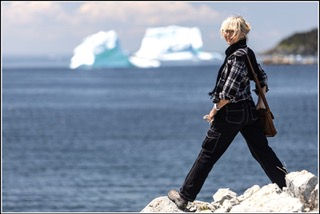Undressing the writer
- aridag5
- Dec 13, 2021
- 4 min read
Updated: Dec 14, 2021
An undergrad student was asked to do an assignnment which involved interviewing a writer. The student chose an Italian female writer: me. Answering her questions forced me to get back to the reasons that led me to become a writer in the first place. It was a revealing moment. But also a moment in which I felt uncovered, almost naked.
Here is the full Q&A.
What got you into writing? When I was a child I had to spend a lot of time in bed because I suffered from asthma. I couldn’t do anything but read. Books became my daily bread, my door to the outer world, and, later on, my “healthy” obsession. I’d read all the time, anywhere. And with my avid reading it also came my love for the written word. At 16 I already knew I wanted a job in which they would pay me for travelling and writing. That's how I became a journalist, an international reporter, and, subsequently, a creative writer.
Was your family supportive of this career choice? Yes. I owe especially to my father his passion for reading and for good literary works, which he passed down to me. My mother always encouraged me to study other languages, open up to the world, and travel extensively.

Arianna Dagnino in Milan in the 1990s
What was the biggest obstacle you have faced (related to being an Italian writer) When I left Italy – first for South Africa, then for Australia, and later on for Canada – I understood that my biggest hurdle would be my knowledge of English as a second language. I was aware that I would never be able to master that language at the level I master Italian, my mother tongue. Nonetheless, after having spent many years in English=speaking countries, I ended up self-translating my work into English and, eventually, writing in English. The second biggest hurdle was – and, partially, still is – trying to be recognized as an author in English-speaking channels and venues. But this is understandable: to expect a fair ground that would totally ignore linguistic difference is unrealistic. For this reason, I am most indebted to my Canadian publisher, Guernica Editions (Toronto), for providing me with this opportunity.
Why did you move around so much? Again, I guess it has a lot to do with my childhood asthma. That long period of forced immobility instilled in me a desire to move, to discover other places, cultures, languages, worldviews. Restlessness is in my cultural DNA, especially after having read Bruce Chatwin’s and other great travellers’ work.

Arianna Dagnino on Vancouver Island
Who did you move with? Initially, I moved by myself. I started when I was 18 and went to London to work as an au pair girl to improve my English; I continued as an undergrad student of Russian language and literature in Moscow, then as a writer for a major Italian travel magazine. Later on, I moved with my husband (Africa, China, the Middle East) and, ten years later, with my husband and our children (Australia, Canada, Europe).
As a female writer what is your advice for other women who want to immigrate to a new country? Be persistent. It takes a lot of courage and self-esteem to migrate to a new country where no one knows you and where, professionally, you are a “nobody”; but if you really believe in your life project, you will find a way to accomplish it.
What inspired "The Afrikaner" and "Transcultural Writers”? The Afrikaner is inspired by the five years I spent in South Africa as an international reporter right at the end of apartheid (1997-2000). It’s the story of Zoe, a young female scientist of Afrikaner origin who goes into the desert to look for fossils and for her place and identity in the new South Africa. Transcultural Writers comprises of a creative nonfiction part (an imaginary account of five interviews with five transcultural authors) and of a critical exegesis on the nature and role of transcultural literature in the age of global mobility. This latter book draws upon my doctoral research.
What is your favourite place to live and why? There is not just one place. There are several favourite places depending on the activities related to them. I love Australia for its white beaches, the red sands of its outback and the sense of freedom they inspire. I love Sestri Levante, in Liguria (Italy), for its rugged coastline, its olive groves, and its Mediterranean sea, which allows for long, safe swimming. I love the little fisherman village of Paternoster, north of Cape Town, South Africa, for it’s there, in a small cottage facing the open sea, that I'd see myself writing the next book.

Sestri Levante (Genoa), Italy
Why do you feel that it's important to be a member of so many organizations? (Ie. STIBC, NAATI, ARPICO, etc…) Organizations such as STIBC (Society of Translators and Interpreters of BC) and NAATI are important when you need to create your professional network and be acknowledged for your competencies/abilities.
Arianna Dagnino, www.ariannadagnino.com











The Afrikaner remains one of my favorite novels. I look forward to more of your stories.